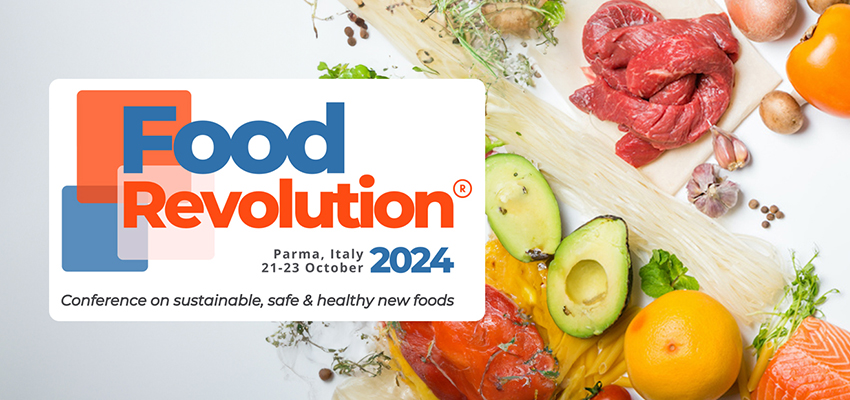The premiere of the new conference, organised by Maurizio Paleologo, the dynamic founder of Affidia srl and Bastiaanse Communication BV, attracted around 150 interested food experts to Parma from 21 to 24 October.
Naturally, the participants had very high expectations of the event, which was billed as a revolution – not something you hear every day, especially in our industry. Did the programme live up to the high expectations? Let me summarise my personal impression of the conference in a single sentence: the title would have suited it better if it had been called ‘Food Evolution’.
The topic of sustainability was the common thread running through all the talks, most of which were given by representatives from the research community. The individual thematic sessions were chaired by internationally renowned representatives of the research scene. With Prof. Chiara Dall'Asta (University of Parma), Prof. Chris Elliott (Queen's University, Belfast), Prof. Roland Poms (Int. University for Applies Sciences), Gianfranco Brambillo (Italian National Institute of Health) and Dr Bert Popping (Focos), Maurizio Paleologo had not only managed to get absolute luminaries of their field to chair the event, but had also shown a sure instinct in selecting excellent moderators and discussion leaders.
As a representative of one of the largest European laboratory groups in Europe, which is a leader in agricultural, food and feed analysis, among other things, I found it particularly interesting to see how the experts assessed the effects of global changes caused by the emerging scarcity of resources and climate change on future food safety in the lectures and workshops.
The trend that can most accurately be described as a ‘revolution’ is the replacement of animal protein with alternative sources of protein. In the future, the growing world population will no longer be able to afford to meet their protein needs with meat and dairy products as they have done in the past. The carbon footprint and the consumption of resources in the production of animal products is many times higher than for plant-based foods. This means that animal products also contribute significantly to global climate change.
But would a change in diet away from animal products also have an impact on the safety of our food in the medium and long term? The answer is yes! The replacement of animal proteins, whose production, properties and risks we know very well, with new alternative protein sources, but also the increasing recycling of waste (e.g. packaging) and by-products from food production, gives rise to new risks that have so far been little researched.
Keywords are: the occurrence of previously irrelevant biotoxins and in particular mycotoxins, new allergens and previously insignificant microbiological risks and, last but not least, the increasing danger of food fraud, whether through false declaration or the exchange of high-quality ingredients for inferior ones.
Traditional methods of food processing and preservation, such as fermentation, have been used for thousands of years. With new, AI-supported methods of enzyme design and new genetic engineering (NGT), microorganisms can be ‘customised’ in such a way that, one day, certain diets tailored to the individual microbiome could be ‘designed’ using precision fermentation methods. However, new methods can also harbour new risks.
Global warming is changing growing conditions in agriculture. The threat of water scarcity on the one hand and increasing heavy rainfall events on the other can change soil conditions and, for example, cause toxic metals to be washed into mud deposits. Weeds previously unknown in our latitudes may spread in cereal fields, for example (e.g. datura). These plant toxins are not yet routinely analysed in cereal products in our country.
Alternative foods (as substitutes for animal products) will only be accepted by consumers if they can convince non-vegans in the long term in terms of texture, appearance and taste.
Link: Next event in spring 2026 in Italy again (probably Vernice)
YOUR PLUS: AGROLAB participates in relevant scientific symposia and actively exchanges ideas with colleagues in the field in order to identify new analytical challenges at an early stage. Our aim is to establish routine-capable test methods in good time so that the quality and safety of your raw materials and all our foodstuffs can be guaranteed in the future - at least in analytical terms.
Author: Dr. Frank Mörsberger, AGROLAB GROUP

 Contact
Contact

 Contact
Contact Career
Career